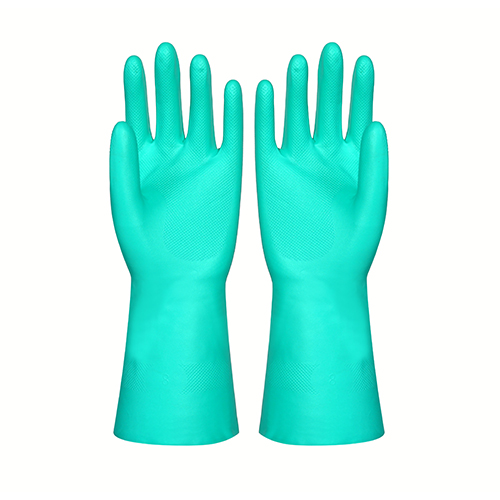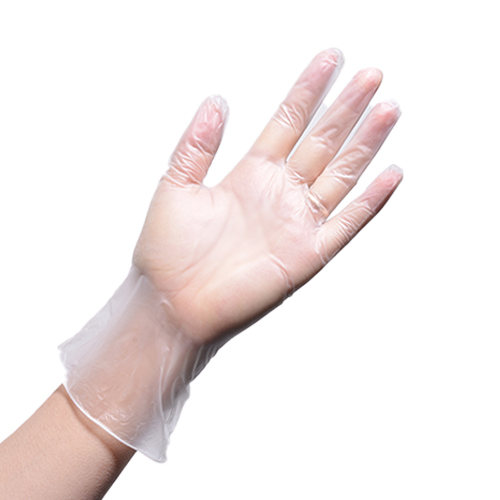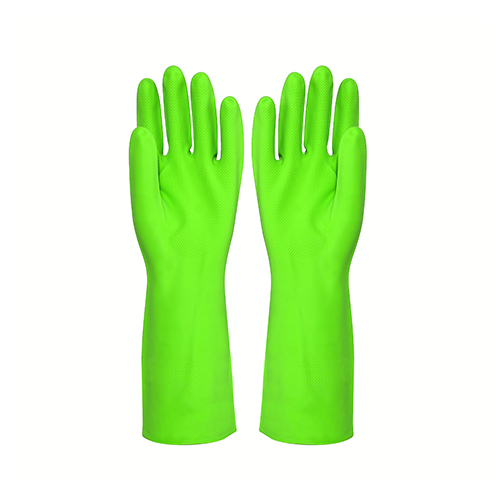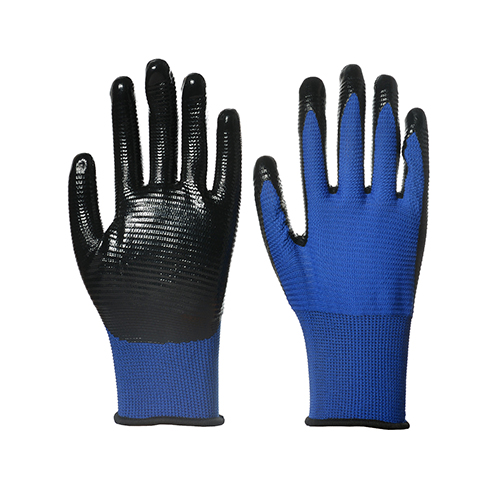 For hygiene and safety reasons, most people wear gloves. However, there is ongoing discussion about which type of gloves is best suited for individual needs, and there is no definitive answer. Each type of glove has its own advantages and disadvantages, so the best glove for you depends on whether it meets your specific requirements.
For hygiene and safety reasons, most people wear gloves. However, there is ongoing discussion about which type of gloves is best suited for individual needs, and there is no definitive answer. Each type of glove has its own advantages and disadvantages, so the best glove for you depends on whether it meets your specific requirements.
Generally, gloves are categorized by different materials. Here are some commonly used gloves from Aibon to help you make a better choice:
Nitrile Rubber Gloves
Nitrile rubber gloves are made from nitrile rubber and contain no latex. They offer excellent chemical resistance, particularly against acidic and alkaline substances. Compared to latex gloves, nitrile gloves provide similar elasticity and flexibility but do not cause latex allergies. They are also more durable, tear-resistant, and puncture-resistant, offering a higher level of protection. They are widely used in medical, laboratory, industrial, food handling, and household cleaning applications.
Vinyl Gloves
Vinyl gloves are made from polyvinyl chloride (PVC) and offer good waterproof properties with some resistance to certain chemicals, making them suitable for light chemical handling. They are more affordable than latex and nitrile gloves, making them a cost-effective option. They do not contain latex proteins, so they are suitable for people with latex allergies. However, vinyl gloves are relatively soft and do not fit as snugly, making them ideal for short-term use and situations with lower protection requirements.
Latex Gloves
Latex gloves are made from natural rubber latex extracted from rubber trees. They offer good sensitivity and flexibility, are durable, and resistant to tearing and puncturing. The material is soft and comfortable, making them suitable for precise tasks. They also provide good chemical, microbial, and viral protection but have poor resistance to oils and organic solvents, so they are not suitable for tasks involving oils or certain substances. Despite their wide application in medical, laboratory, food handling, and cleaning fields, latex gloves can cause allergic reactions in some individuals. If you are allergic to latex, we recommend choosing alternatives like nitrile gloves.
Polyethylene Gloves
Polyethylene gloves are disposable gloves made from polyethylene (PE), known for their low cost and good waterproof properties. They pose no risk of latex allergies and are smooth and easy to wear. They are commonly used in food handling, cleaning, dyeing, and household tasks. However, polyethylene gloves are less durable, thinner, and less resistant to abrasion, tearing, and puncturing, making them unsuitable for high-intensity environments.

Latex Coated Gloves
Latex coated gloves are cotton or textile gloves that have been treated with a layer of latex on the surface. They provide excellent grip, abrasion resistance, waterproofing, and chemical resistance, along with good comfort and breathability. However, like latex gloves, they may cause latex allergic reactions. Although latex coatings offer some protection, they are not suitable for strong acids, alkalis, solvents, high temperatures, or environments with significant oil or solvent contact.
Nitrile Coated Gloves
Nitrile-coated gloves feature a nitrile coating over a cotton or synthetic fiber base. They offer excellent chemical and oil resistance, along with superior puncture and abrasion resistance. They also provide good grip, ensuring objects do not slip in slippery or greasy conditions. These gloves are ideal for mechanical work, construction, chemical laboratories, and research environments.
Quality
The quality of gloves is a crucial factor when purchasing. It’s best to obtain samples before making a decision to assess the glove quality. Aibon offers free samples for you to test the gloves’ quality at no cost.
Remember, gloves may look similar, but small changes can significantly affect their performance. Therefore, it’s important to thoroughly understand all relevant information before making a choice.
Summary
There is no precise answer for selecting gloves as it depends on your needs and the environment in which they will be used. The decision ultimately rests with you. If you’re unsure about which gloves to choose, Aibon, with 20 years of experience in the glove industry, can provide the best advice to help you make the perfect choice. Please contact us, and we will assist you throughout the process.
How to Measure Glove Sizes – Source: AIBON
Latex gloves– Source: AIBON
Safety gloves– Source: AIBON
Working gloves– Source: AIBON

